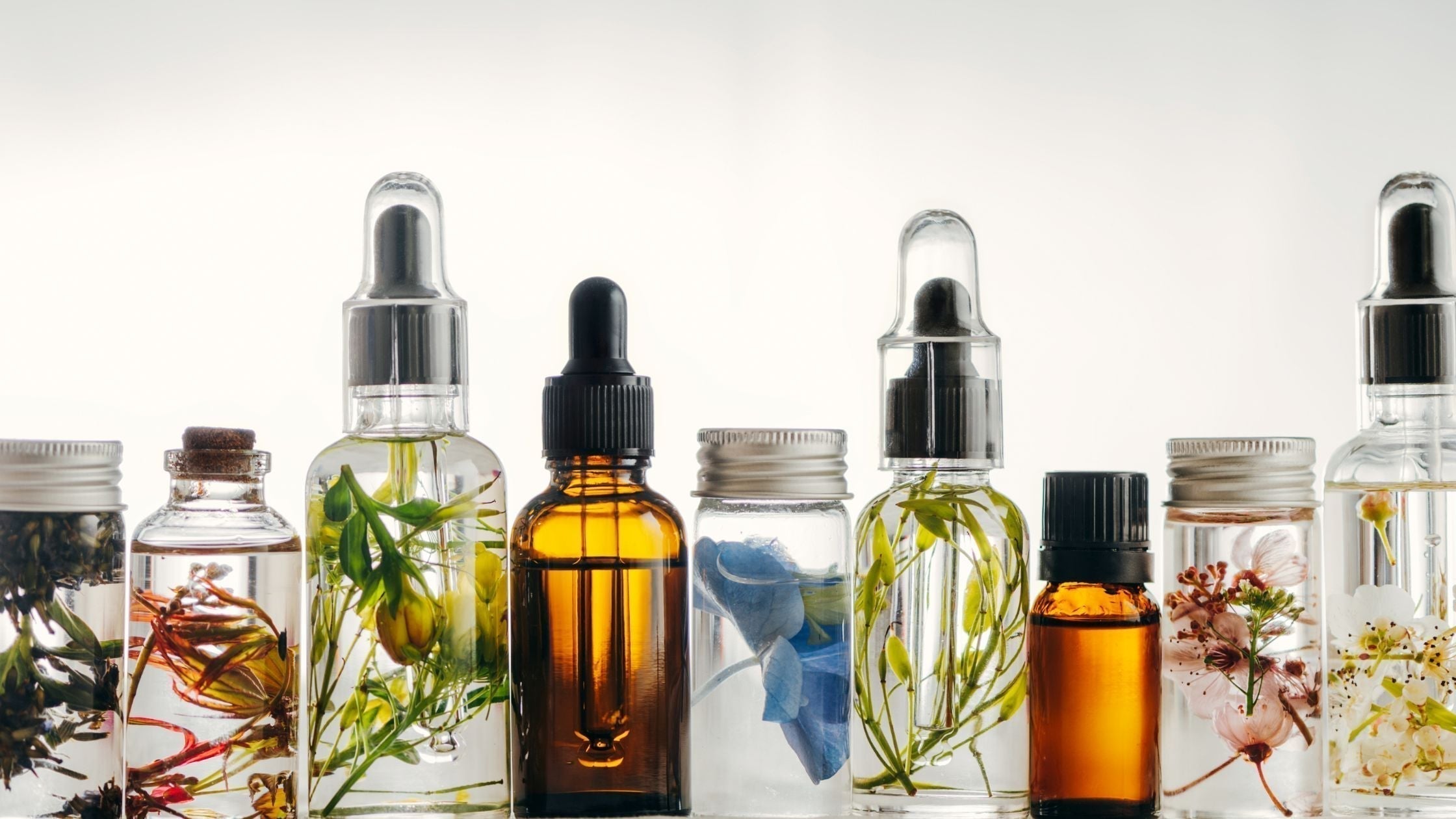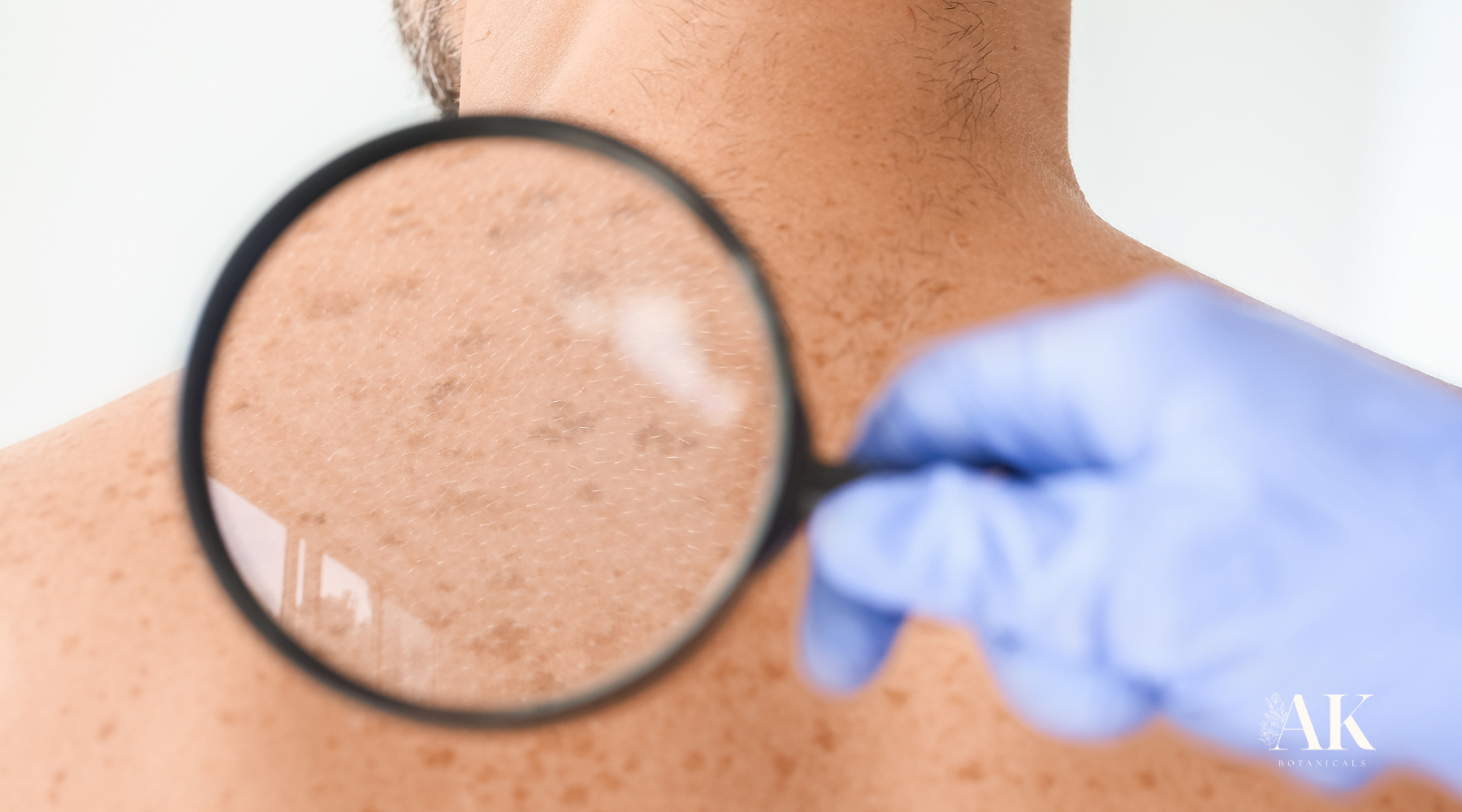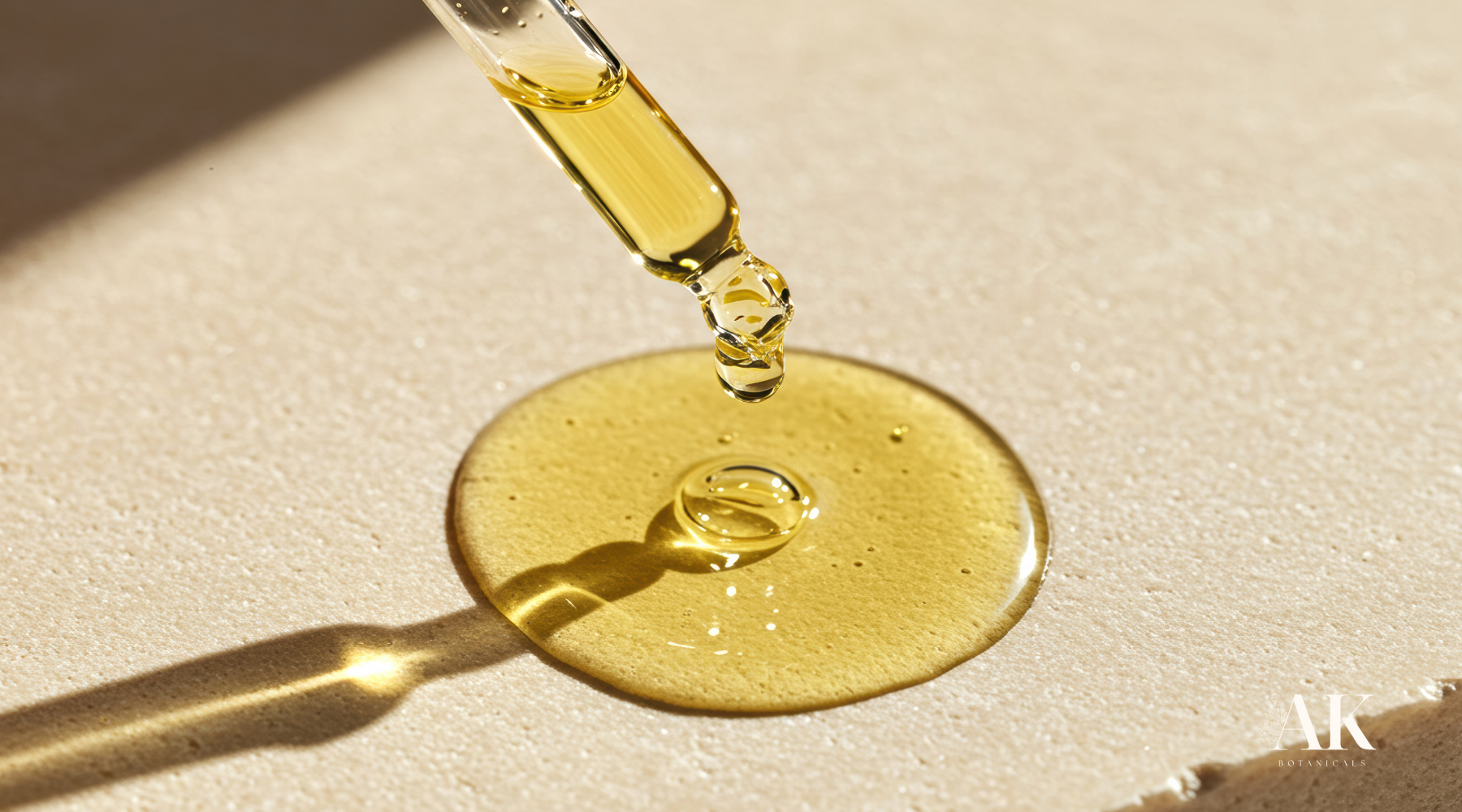
Best Essential Oil for Actinic Keratosis: A Holistic and Scientific Perspective
Essential oils have a rich history that stretches back thousands of years, revered across cultures for their unique properties. From the ancient Egyptians incorporating these natural oils into daily practices to the Greeks and Romans using them in rituals, essential oils have long been valued as part of wellness and self-care traditions.
These concentrated plant extracts contain naturally occurring compounds that can support relaxation, balance, and skin comfort. At AK Botanicals, we embrace the tradition of these oils, recognizing their ability to complement modern approaches to overall skin wellness.
When it comes to actinic keratosis (AK), also known as solar keratosis, it’s important to seek guidance from a qualified healthcare professional for diagnosis and care. While essential oils are not intended to treat or cure AK, many people use them as part of a holistic approach to support the look and feel of healthy-looking skin.
If you’re seeking a more balanced way to care for your skin, essential oils may offer a natural addition to your daily routine, bringing forward the time-tested gifts of nature in harmony with contemporary lifestyle practices.
The Timeless Role of Essential Oils in Skin Wellness: A Holistic Approach
The Timeless Role of Essential Oils in Skin Wellness: A Holistic Approach
For thousands of years, plant-based oils have played a pivotal role in skin wellness traditions across cultures. Ancient Egyptian practices incorporated frankincense oil and myrrh for their sacred significance and as part of rituals that emphasized care of the skin. In Ayurveda and Traditional Chinese medicine, essential oils have long been associated with supporting balance and overall well-being—a philosophy that continues to inspire today’s holistic approaches to self-care.
During the Renaissance, European apothecaries refined herbal extractions, introducing essential oils into their preparations for daily use. As scientific interest grew in the 20th century, researchers began studying the naturally occurring compounds within these oils, helping to bridge traditional practices with modern perspectives on wellness.
While essential oils are not intended to diagnose, treat, cure, or prevent medical conditions, interest in their properties has been reflected in academic publications. For example:
PubMed: hosts a wide range of studies exploring the role of plant extracts and aromatic compounds in wellness and dermatological research.
Google Scholar: offers access to a broad database of peer-reviewed research exploring the intersection of traditional practices and modern science.
Journal of Ethnopharmacology: often publishes articles on the traditional uses of botanicals in skin and overall health.
Top Essential Oils for Actinic Keratosis Support: Combining Tradition and Research
The resurgence of essential oils in modern skin care stems from their long history of use in wellness practices. Many oils contain naturally occurring compounds that have traditionally been used to soothe and support the appearance of skin exposed to daily stressors. Frankincense oil, for example, has been revered across cultures for its role in rituals and for its association with maintaining healthy-looking skin.
Tea tree oil (Melaleuca alternifolia) has been part of Indigenous Australian traditions for centuries, valued for its cleansing properties and ability to support comfort in irritated skin. Emerging research has explored its potential role in skin wellness.
Other natural ingredients such as Kanuka honey are being evaluated in various studies for their soothing and balancing properties. While these are not treatments for actinic keratosis, some individuals choose to incorporate them into a broader self-care routine for skin wellness.
Additional essential oils, including lavender, helichrysum, and carrot seed, are valued for their antioxidant activity, which can help protect the skin’s surface from environmental stressors. Chamomile and calendula are also frequently used to calm and comfort the skin. Together, these natural remedies reflect a holistic philosophy that supports long-term skin wellness.
While ongoing research continues to explore how plant-based compounds interact with the skin, it’s important to note that essential oils are not intended to diagnose, treat, cure, or prevent actinic keratosis or any other medical condition. Anyone concerned about AK should consult a qualified healthcare professional for appropriate diagnosis and care.
Holistic Skincare for Sun Damage and Actinic Keratosis
If you’re exploring natural approaches to overall skin wellness, a blend of essential oils may provide supportive care for skin that has been exposed to the sun. Many DIY blends include carrier oils like jojoba or rosehip, which help essential oils absorb more effectively while offering additional nourishment. Coconut oil and sweet almond oil are also popular options known for their ability to hydrate and comfort sensitive skin.
Essential oils have long been part of holistic wellness traditions, and interest in their potential continues to grow as more research explores their role in supporting skin health. Though they remain a complementary option rather than a primary medical solution, essential oils offer an approach that respects both traditional practices and modern lifestyle choices.
For those concerned about actinic keratosis (AK), it is important to consult a healthcare professional for proper diagnosis and care. While essential oils are not intended to treat or cure AK, many people find they can be incorporated into a daily routine to help maintain the look and feel of healthy skin.
Blending Nature, Science, and Skincare
When used responsibly and with the guidance of a dermatologist, essential oils may be included in a holistic skincare routine to support comfort and maintain the look of healthy skin. While medical interventions remain the standard recommendation for managing actinic keratosis (AK), many people explore natural options as a complementary part of their wellness practices.
AKti-Clear, developed with this holistic philosophy in mind, is a botanically infused skincare formula designed to support skin wellness. Each ingredient is selected with respect to both traditional uses and emerging research, reflecting our belief that nature and science can work in harmony.




